
Shanghai-based business analyst Shaun Rein, in an extensive interview at Forbes, says that after a very bearish 2024, China’s economy has found its way upwards because of Trump. “People rallied together and said, ‘We’ll deal with lower incomes. We’ll deal with bad sales. We want to make Trump bend’, he tells Forbes.
Forbes:
Long-time China market researcher Shaun Rein chalked up one of his three international business bestsellers in 2018 with “The War for China’s Wallet,” a look at how to sell to the country’s more than one billion consumers. At a time when investors, multinationals and politicians are awaiting a relatively brisk post-pandemic spending recovery in the world’s second-biggest economy, Rein has some good news: it’s coming soon.
“I’ve been in China for 28 years. Last year was probably the most bearish I’ve ever been on the economy,” Rein said in a Zoom interview from Shanghai earlier this month. “Youth unemployment hit 18.8%. Companies weren’t hiring. Fixed asset investment went up only about 0.1 percent. Last July and August were as bad as the height of Covid in terms of confidence and spending. Average retail sales only grew three to four percent year-on-year. People were scared,” even though personal savings totaling $20 trillion, among the world’s largest, he said.
In the last two months, however, Rein’s outlook has reversed. “This is the most bullish I’ve been on China in the last six years,” said Rein, the founder and managing director of Shanghai-headquartered China Market Research Group. Harvard-educated Rein’s other books include “The End of Cheap China” in 2012, “The End of Copycat China” in 2014, and last year’s “The Split: Finding Opportunities in China’s Economy in the New World Older.”
A catalyst for his new, upbeat view is that the hardest punches thrown by the Trump administration in this year’s trade war have yet to prove very damaging to China’s overall economy. “The Chinese feel that China has beat Trump with the tariff and trade war since Liberation Day, and they had the resolve to push back hard. They were not going to bend down because they wanted to push back over a century of humiliation. China bent down during the Qing Dynasty to the Western imperial powers. China wasn’t going to do that again.”
“People rallied together and said, ‘We’ll deal with lower incomes. We’ll deal with bad sales. We want to make Trump bend.’ And Trump did,” Rein said. “By going from 145% to 30% tariffs, Chinese felt they beat Trump. I don’t want say there’s exuberance in the country, but there’s a lot less anxiety than at any time I’ve seen in the last 7-8 years.”
Shaun Rein is a speaker at the China Speakers Bureau. Would you like him at your meeting or conference? Contact us or fill out our speakers’ request form.
Are you looking for more strategy experts at the China Speakers Bureau? Do check out this list.
P
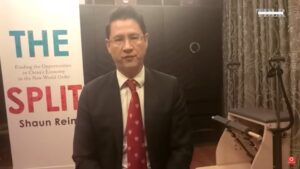
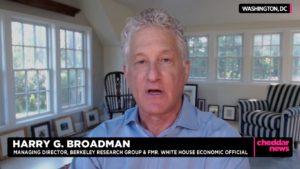



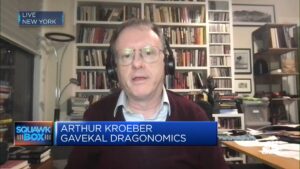 China might have the upper hand in dealing with the US president’s efforts to curtail the country’s economy with sky-high tariffs, suggests
China might have the upper hand in dealing with the US president’s efforts to curtail the country’s economy with sky-high tariffs, suggests 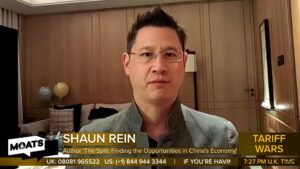

 Tariffs and sanctions on China are not going to help the US, says Shanghai-based business analyst
Tariffs and sanctions on China are not going to help the US, says Shanghai-based business analyst 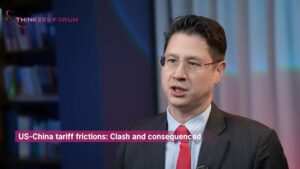

 🙈 Before the win was official, “Trump announces win (特朗普宣布胜选)” and related hashtags had already racked up 420 million views on Douyin. Many likened the election to a gender reveal party, with one comment saying, “Congratulations USA, it’s a boy!”
🙈 Before the win was official, “Trump announces win (特朗普宣布胜选)” and related hashtags had already racked up 420 million views on Douyin. Many likened the election to a gender reveal party, with one comment saying, “Congratulations USA, it’s a boy!”  Meanwhile, many are focused on real impacts, asking, “Will gold prices drop?” 👇 More below.
Meanwhile, many are focused on real impacts, asking, “Will gold prices drop?” 👇 More below.